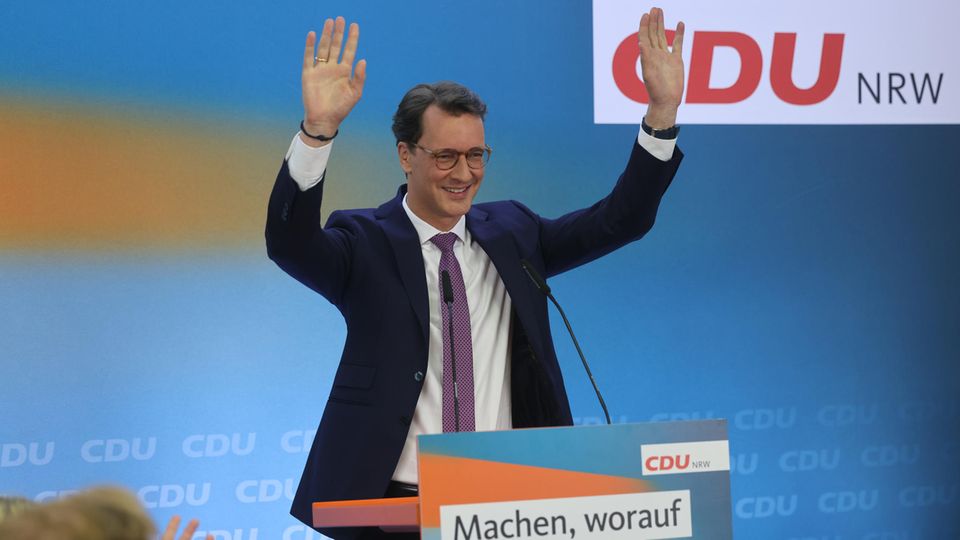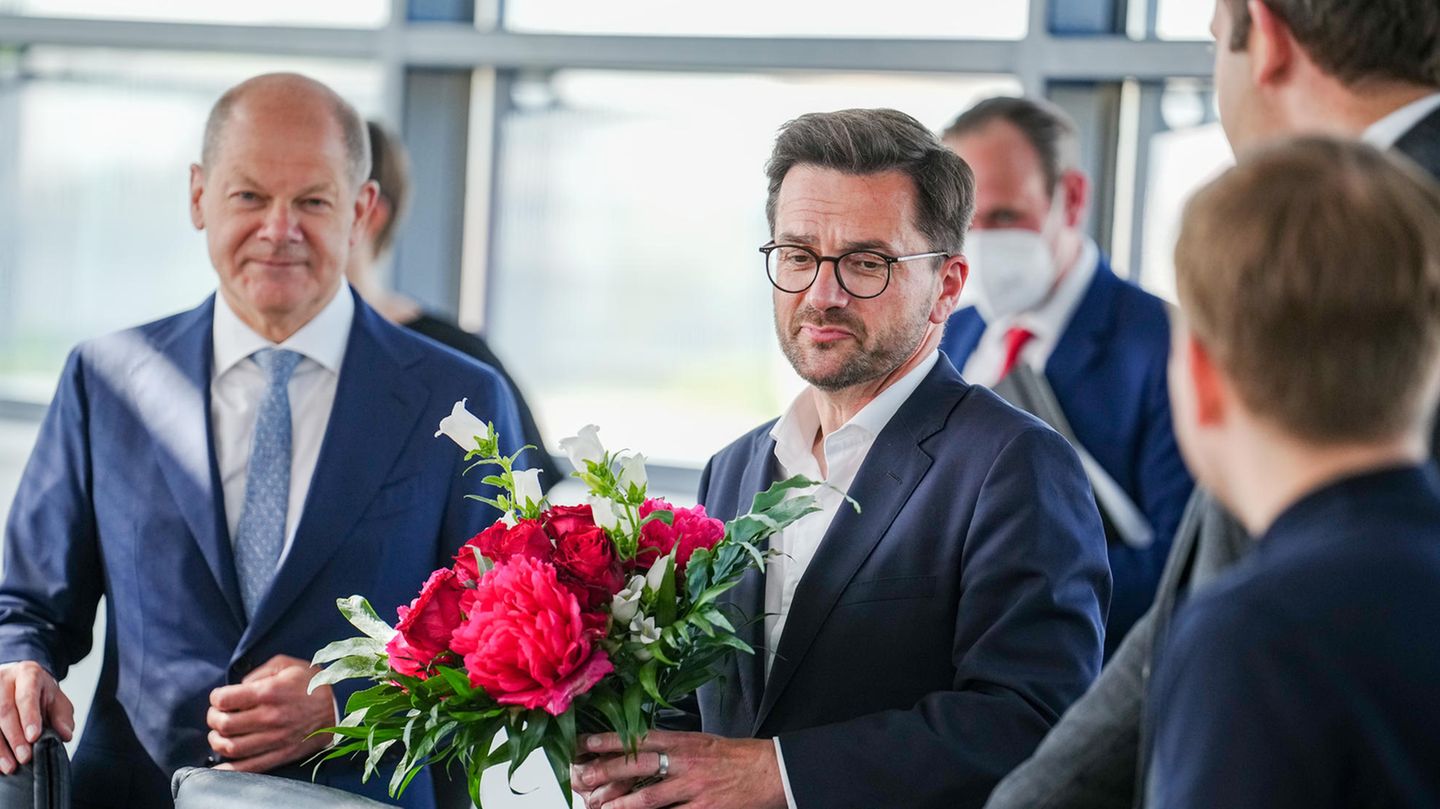In the North Rhine-Westphalia election, the SPD achieved a historically poor result in its former home country. Many of their constituents apparently stayed at home. Even the election winner, the CDU, shouldn’t be too euphoric.
Hangover mood in the Chancellor’s party: The clear defeat of the SPD in their now probably only former home state of North Rhine-Westphalia hurts the comrades very much. Actually, at least a head-to-head race with the CDU was expected, but the defeat was clear on Sunday, the gap to the Union is large and Chancellor Olaf Scholz is also in a bad position.
SPD: Many supporters stayed at home
If you look at the voter migration, it is noticeable that the SPD team led by top candidate Thomas Kutschaty has not managed to do one thing in particular: to persuade their own supporters to tick the SPD box. More than 300,000 people who voted for the Social Democrats five years ago stayed at home this time. None of the other parties gave anywhere near as much to the non-voter camp as the Social Democrats.
The current chancellor’s party lost another large contingent of voters to the Greens, the big winners of the evening alongside the CDU. Around 260,000 SPD voters from 2017 chose the coalition partner from the federal government this time. This works – also because the Green top candidate Mona Neubaur (so far) is not one of the big political figures – like voting with your feet on current federal politics. While Chancellor Olaf Scholz, who has been criticized, gave his party friends in Düsseldorf a headwind, despite their great commitment in the election campaign, the very good performance of the NRW reasons is also due to the good performance of Vice Chancellor Robert Habeck and Foreign Minister Annalena Baerbock .

Greens: Big boost from Berlin
Figures from Infratest Dimap support this conclusion. Accordingly, 43 percent of all voters in North Rhine-Westphalia believe that the Greens are doing best in the Berlin traffic light coalition. According to the figures, old reservations about the eco-party that they do not care enough about the economy and the creation and preservation of jobs have declined by 20 percent in NRW since the last election. That’s what a majority of voters want, even in the most populous federal state. The Greens will definitely be involved in the next government – it remains to be seen in which constellation.
CDU: Mainly worn by the elderly
If the election winner CDU has its way, the best constellation would be black-green under the leadership of the incumbent Prime Minister Hendrik Wüst. Less than a year ago, the Westphalian replaced Armin Laschet, who had migrated to Berlin and failed as a chancellor candidate, and so had to largely forego the official bonus. Wüst was still considered by many voters to be more likeable and competent than his SPD challenger Kuchaty – not a glorious page for the comrades either. The CDU obviously managed to mobilize its clientele more than the SPD – especially in its classic rural strongholds.
As the election winner, Wüst and his party are right to strive for leadership, but if you look at it in perspective, there shouldn’t be too much euphoria in the CDU either. The percentage increase of 2.8 points to 35.7 is mainly due to the poor turnout of only 55.5 percent. In absolute numbers, the Union lost almost 190,000 votes compared to 2017, despite some mobilization successes. And the CDU should have something else to think about: According to Infratest Dimap, the party owes the fact that it was ahead on Sunday primarily to voter groups over 45 years of age. Here she collected the votes she lost among young voters. If it wants to continue to be successful in NRW in the future, the party must work on it.
FDP: receipt for corona policy in schools
Not to forget: A good part of the CDU’s success is also at the expense of the previous coalition partner in Düsseldorf, the FDP. The Union lured a whopping quarter of a million votes from the Liberals, which almost catapulted them out of the state parliament. Five years ago, FDP leader Christian Lindner had helped his party to a resounding success, Vice Prime Minister and Integration Minister Joachim Stamp could not develop nearly as much traction. In addition, the FDP fell on its toes for the education policy it was responsible for in Corona times. Like the SPD, the Liberals also lacked the tailwind from Berlin, and despite loud attempts in the shadow of the Ukraine war, they are unable to distinguish themselves in the traffic light coalition, at least in terms of their own clientele. According to the figures from Infratest Dimap, the NRW-FDP was the only party on Sunday to give votes to all other parties – even 10,000 to the AfD, which otherwise also lost voters to almost all other parties and the non-voter camp. 120,000 potential FDP voters also decided to stay at home.
Sources: ; ;
Source: Stern
David William is a talented author who has made a name for himself in the world of writing. He is a professional author who writes on a wide range of topics, from general interest to opinion news. David is currently working as a writer at 24 hours worlds where he brings his unique perspective and in-depth research to his articles, making them both informative and engaging.




